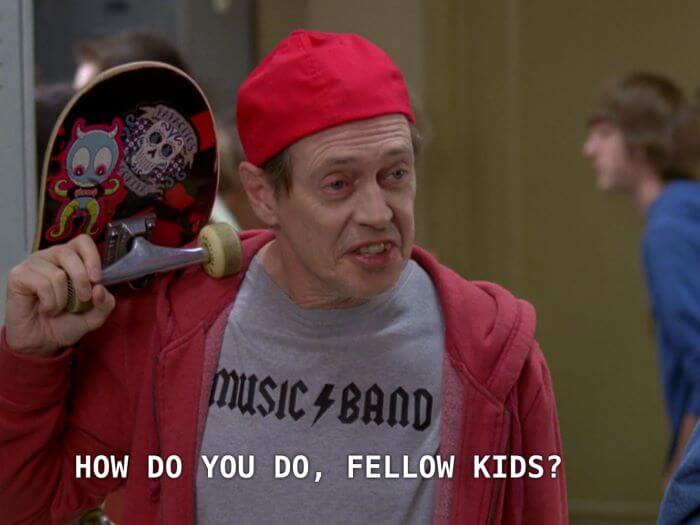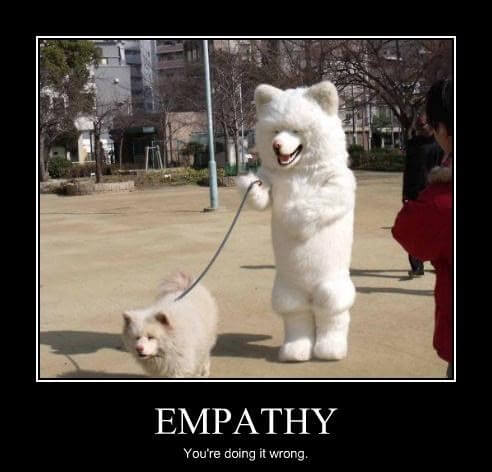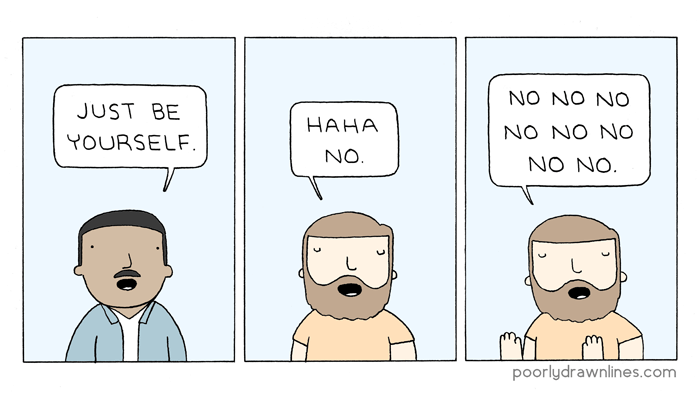Don't Be Yourself
We've all heard the advice to "just be yourself", but that was a lie
We've all heard the advice — "just be yourself". It's a phrase handed out like candy, meant to comfort and reassure, and championed as the path to happiness and success. It's told to children and adults alike.
But when you look closely, this advice often falls short in the real world, where relationships and opportunities are shaped not just by authenticity, but by how we connect with others.
So, don't be yourself. Instead, strive to be a better version of yourself. Not in some deep, motivational self-help way, but in a much simpler and more practical sense.
The truth is, the most important thing in life is having people like you. That's it. When people like you, everything else follows: friends, opportunities, relationships, jobs — everything.
The key to being liked often involves some level of adjusting or adapting to fit the environment. It's not about abandoning who you are, but rather understanding that we live in a social world where empathy and social awareness are crucial.
The most successful people know when to hold back, when to adjust their tone, and when to shift their behavior to make others comfortable.
By consciously working on the traits that make you more likable, you won't just be pretending. Over time, you'll genuinely evolve into the kind of person others enjoy being around. Maybe. Hopefully.
Why Being Liked Matters
The harsh reality is that likability is a currency, and it can open doors that talent alone cannot.
You might argue that it's not fair, that people should value you for who you are deep down, but the world doesn't work that way.
The only people who can afford to be unpleasant are those who have a lot of something that others want — money, influence, connections, or power. For everyone else, there's mastercard being liked is essential.
Imagine you're a hiring manager. You have two candidates:
Candidate A is brilliant, meets all the job requirements, but is negative, difficult to talk to, and generally unlikable.
Candidate B is decent in terms of job skills, but they're a great person to be around, enjoyable to talk to, and generally likable.
Who do you think is getting hired? The answer is usually Candidate B. In the workplace, where you'll spend hours a day interacting with the same people, likability is crucial.
You can teach someone how to code, how to write a spreadsheet, or how to manage a project. What you can't teach is how not to be an unbearable jerk.
How to Be a Better Version of Yourself
Shut up and listen
Contrary to popular belief, it's okay to talk a lot or talk about yourself. The important thing to remember is when the other person starts to talk, shut up, make eye contact, and really listen.
People will overlook how much you talk if they feel that they can easily get a word in edgewise, and that you are truly listening to them when it's their turn.

I know someone who is amazing at talking. He can talk about himself, about his interests, his family, his job, everything, nonstop.
But it's not annoying and he's well-liked because the second you open your mouth, even before you speak, he stops talking immediately and starts listening to you, ready to ask follow up questions to keep the conversation going.
He is aware of when you want to speak, which is important, and brings us to our next point.
Awareness
Have you ever walked into a room and got the feeling you were unwelcome? Or sensed you should change the subject mid-conversation? Maybe you've been around someone who doesn't know when their joke isn't landing or that they're making people uncomfortable?
If you answered no to any of these, I hate to be the bearer of bad news, but they have absolutely happened to you. You just didn't pick up on them. That's where social awareness comes in, and it's something you need to develop.
People with high social awareness have a natural understanding of how their words and actions affect others, and they use this understanding to guide their behavior.
This skill, often referred to as "reading the room," is about being attuned to the emotions and responses of those around you.
By recognizing subtle shifts in tone or body language, socially aware individuals can adapt in ways that make others feel at ease, which ultimately strengthens relationships and makes them more likable.
Code Switching
Code switching is the ability to adjust your communication style based on your audience or environment. It's a vital skill because it allows you to connect with different people more effectively.
Everyone already does this subconsciously - the way you speak to your friend, your boss, and your grandma are all very different, right? This natural shift in tone, language, and mannerisms is a form of code switching.
The challenge with code switching is that it needs to feel natural and seamless. If it's forced, it can come off as awkward or inauthentic.

When you're truly good at it, you don't have to think about it - you simply adapt when the situation calls for it. This adaptability allows you to relate better to others, ensuring smoother interactions and better connections in every setting.
Positively Negative
People are naturally drawn to positivity. If you're always negative, people will start to avoid you.
This doesn't mean you can't have negative thoughts, just don't let them dominate your conversations and personality.
Being positive is one of the easiest ways to make yourself more likable. People are naturally drawn to optimism and want to be around those who lift them up, not bring them down.
Constant negativity pushes others away, even if your complaints are valid.
Empathy
Empathy is arguably the most important character trait you can have.
Empathy means considering other people's feelings and perspectives — it's the opposite of "main character syndrome."

Sure, you are the main character in your own life, but having empathy means understanding that to everyone else on the planet, you're just a supporting character.
Internalizing that idea can be tough because you've been living inside your own head for your entire life. It's natural to feel like your emotions, thoughts, and actions are the center of everything.
But the reality is, you only exist as part of a larger group. And when you fail to consider how your actions affect others, it becomes glaringly obvious to them.
Every negative trait you have is negative precisely because it clashes with the idea that you're not the only person who matters.
When you're late to a meeting, you're wasting someone else's time. When you ignore a text, you're sending the message that the person isn't important enough to deserve a response.

"Putting yourself in someone else's shoes" is age-old advice, but it's still the fastest way to become more likable.
If you can train yourself to consistently view your actions from the perspective of others, you'll become someone people enjoy being around. That shift in perspective is the real secret to building stronger relationships.
People will complain about not wanting to "be a different person", or they "feel like they're wearing a mask" in different scenarios and social situations. But those people are wrong, and are very often insufferable.
Just like code switching, you're already doing this without even realizing it. Your personality naturally shifts depending on who you're talking to, even if the differences are subtle.
You can be polite with your in-laws or a police officer, be more casual or crass with your friends, and still be entirely yourself. It's about adapting to the context, not changing who you are.
Empathy is the glue that holds together all the ways you're working to be a better version of yourself. It keeps you grounded and connected to the people around you, making you someone they genuinely want to be around.
Being Yourself
So, don't just be yourself — be a better version of yourself. Cultivate the qualities that make you more likable and watch how opportunities start to appear.

Whether you're looking to improve your career prospects, build relationships, or just improve your overall quality of life, being likeable is the key.
And that means evolving beyond who you are now to become someone even better.

